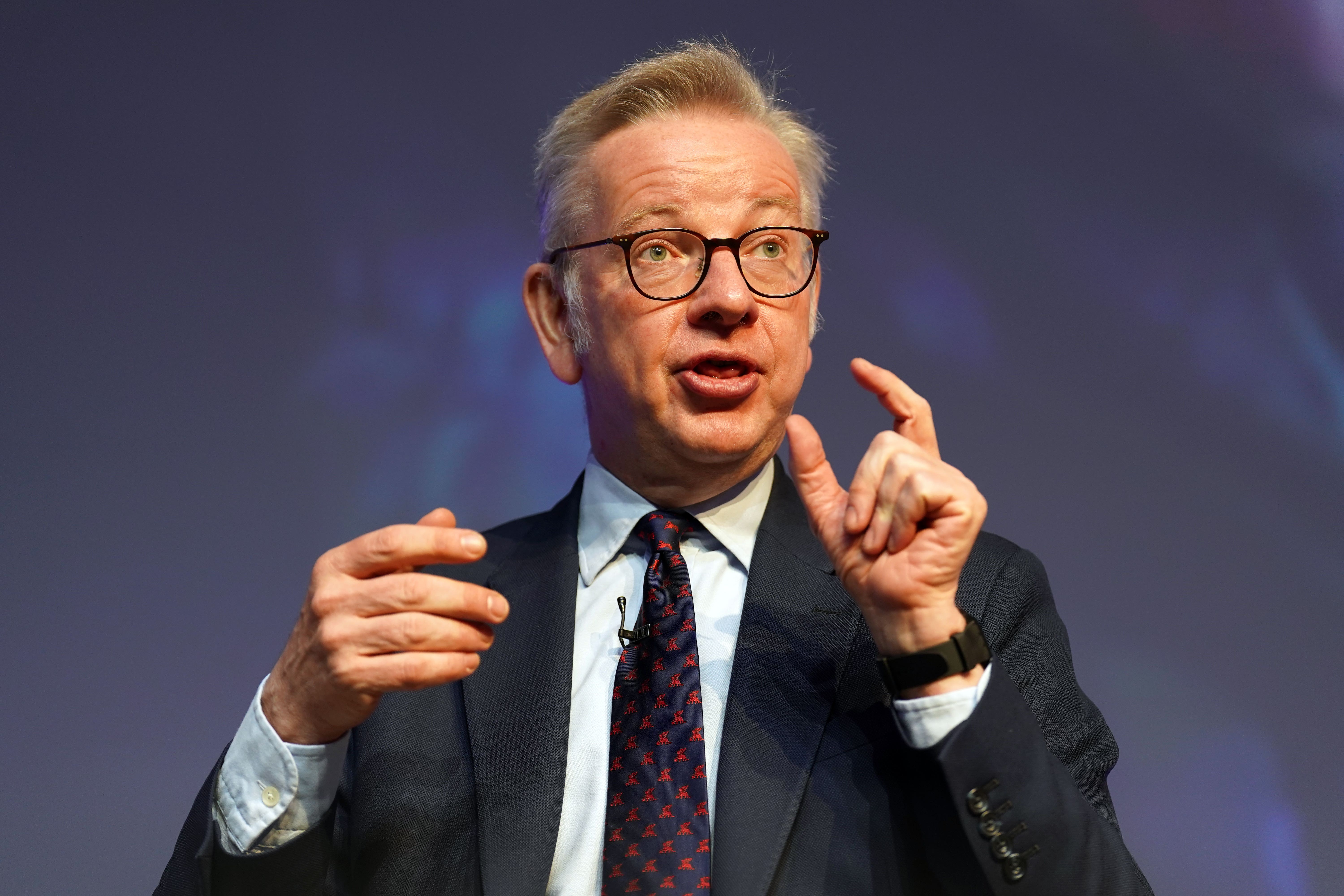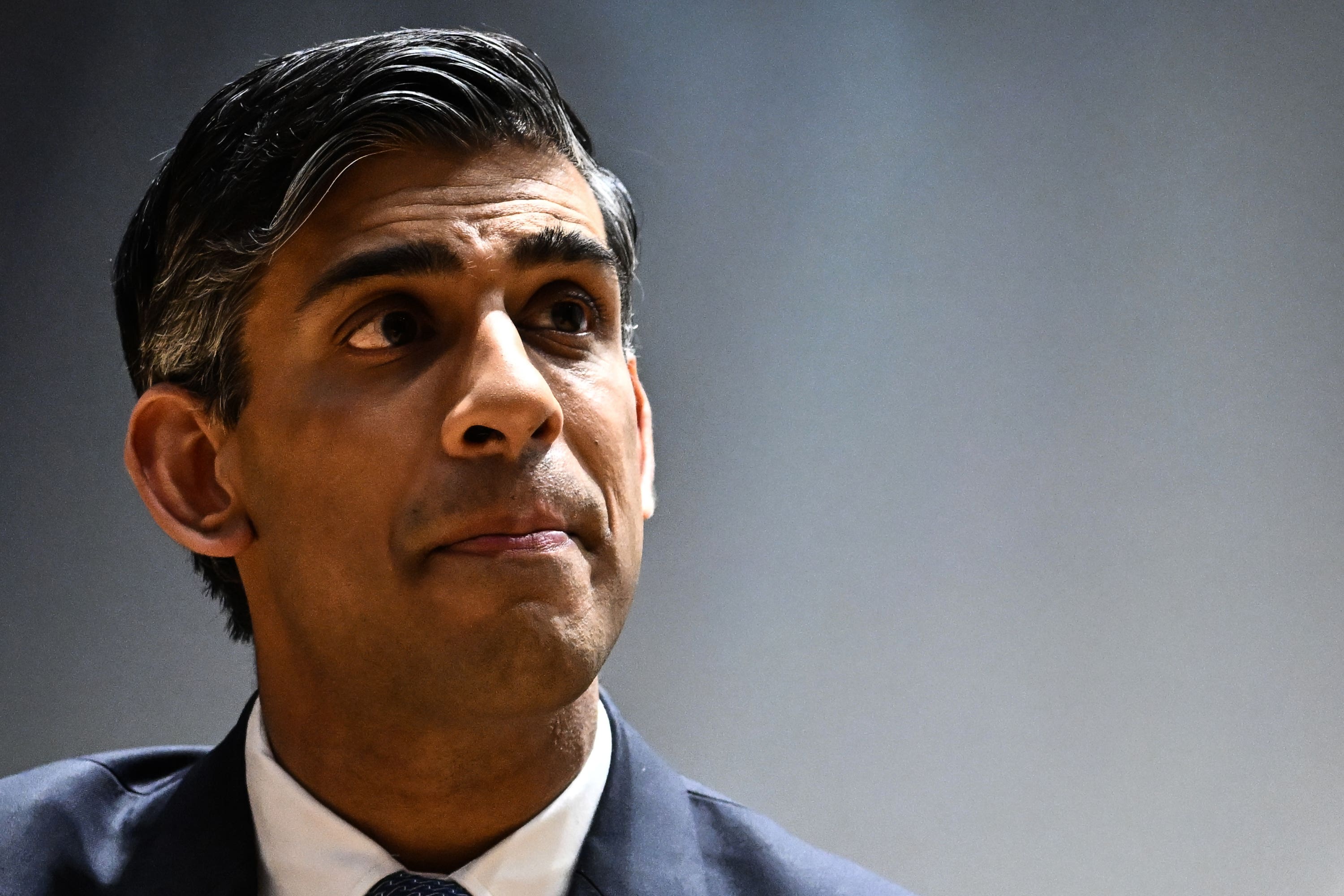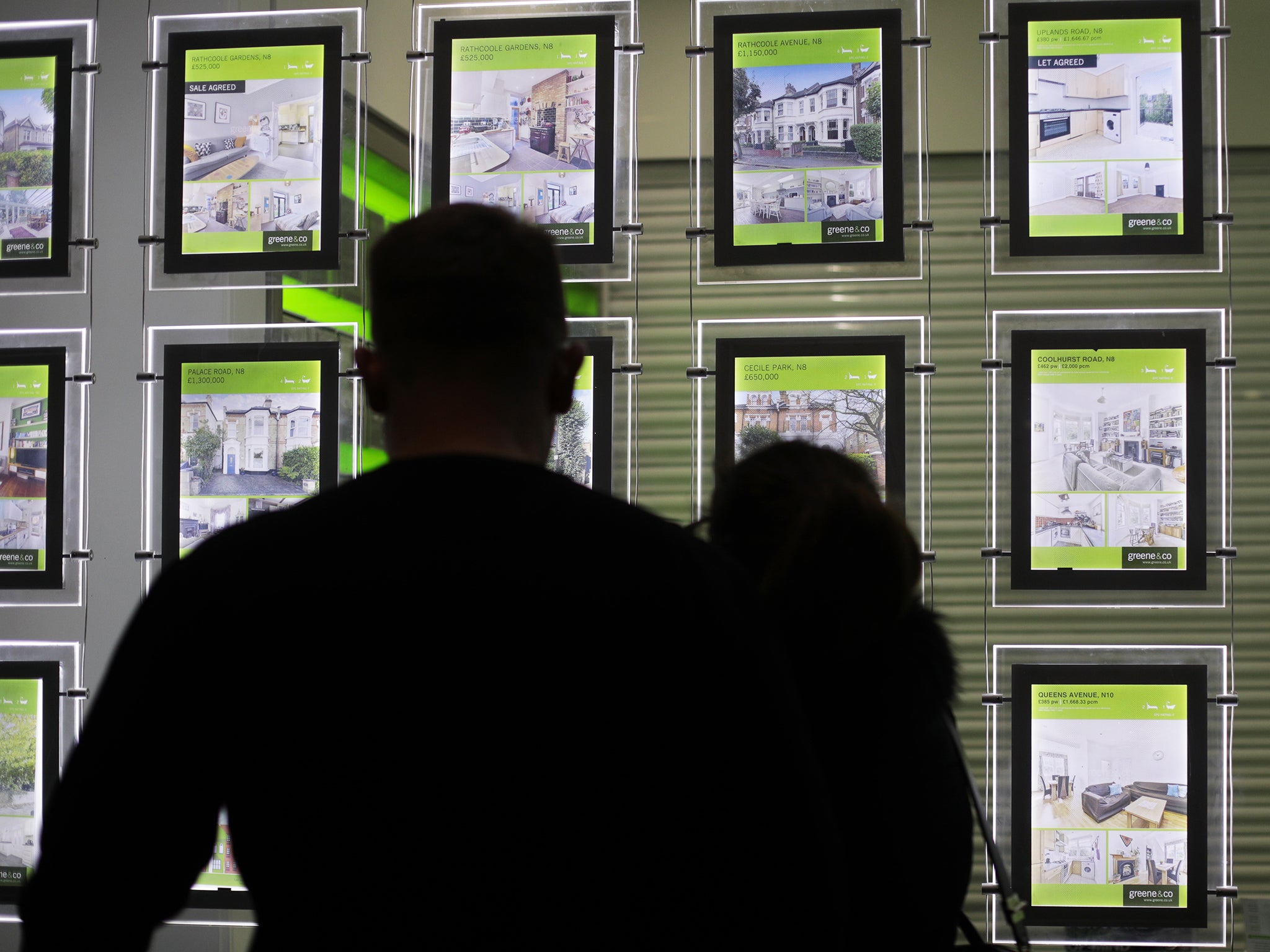Michael Gove says 25-year fixed rates could ease mortgage crisis
Housing secretary suggests Canadian-type deals – as Sunak government under pressure to end ‘mortgage horror show’

Your support helps us to tell the story
From reproductive rights to climate change to Big Tech, The Independent is on the ground when the story is developing. Whether it's investigating the financials of Elon Musk's pro-Trump PAC or producing our latest documentary, 'The A Word', which shines a light on the American women fighting for reproductive rights, we know how important it is to parse out the facts from the messaging.
At such a critical moment in US history, we need reporters on the ground. Your donation allows us to keep sending journalists to speak to both sides of the story.
The Independent is trusted by Americans across the entire political spectrum. And unlike many other quality news outlets, we choose not to lock Americans out of our reporting and analysis with paywalls. We believe quality journalism should be available to everyone, paid for by those who can afford it.
Your support makes all the difference.Cabinet minister Michael Gove has suggested that mortgage rates fixed for 25 years could help ease the crisis facing by homeowners facing spiralling monthly costs.
Rishi Sunak’s government was urged to “end this mortgage horror show” after the average two-year fixed-rate deal topped 6 per cent for the first time this year.
But Mr Sunak and his housing secretary Mr Gove have ruled out government help – but have urged the banks to offer “bespoke support” to those struggling with interest rates.
Acknowledging that it was becoming “more difficult to have access to mortgage finance”, Mr Gove that longer-term fixed deals could be the answer to ending unpredictability faced by homeowners.
“One of the things that is right for levelling up over all is making sure we can develop the types of products that are elsewhere in the world,” the levelling up secretary told the Daily Telegraph.
“Particularly countries like Canada – which are long-term, fixed-rate mortgages, so you don’t get the oscillation of how much you pay every two or five years, but you have certainty over as long as 25 years on what you pay.”
While such a move could ease pressure by allowing Britons to plan over the longer-term, it could make it harder for Bank of England control inflation through widespread rate rises.
Experts have warned that the pressure on Britons’ mortgage costs is set to last until 2025, with experts warnings are unlikely to start falling before the end of next year.
Mr Sunak is expected to make a speech on Thursday in a bid to reassure the public after the Bank of England is set to confirm yet another rise in the base rate.
And chancellor Jeremy Hunt told MPs on Tuesday that he will meet lenders later this week and ask them to provide support to those struggling to with their mortgage costs.

Labour’s shadow chancellor Rachel Reeves “dismissing [government support] out of hand will just be more bad news for people with mortgages who were looking to come off those deals this year”.
And the Liberal Democrats said anything else but government intervention would be “a disaster for struggling families”.
Some Tory MPs have called for the kind of tax relief for mortgage holders seen during the Margaret Thatcher government. Mortgage interest relief let Britons claim interest paid on mortgages off their tax.
Damien Moore, Tory MP for Southport, said it would give Mr Sunak “breathing room to deliver our priority of halving inflation”.
Tory MPs Jake Berry and Jonathan Gullis also called for the return of mortgage interest tax relief in the Commons.
But Treasury minister Andrew Griffith appeared to rule out the idea, saying any unfunded commitments would be “disastrous” in fuelling higher inflation for a longer period.

The Bank of England is expected to raise the base rate further on Thursday as it grapples with stubbornly high inflation. Some analysts expect the base rate to rise by another 0.25 percentage points on Thursday, taking the rate to 4.75 per cent. This would immediately push up costs for people on variable rate tracker mortgages.
Around 2.4 million fixed-rate mortgages are due to end between now and the end of 2024, according to figures from UK Finance. Many of these homeowners could be in for a bill shock when they come to re-mortgage, having been used to paying significantly lower rates.
Senior Tory MP Lucy Allen warned the Bank not to put up intertest rates – saying the nation faced a “mortgage catastrophe”, warning of “hideous consequences” and that it is “only going to get worse”.
Andrew Sentence, a former member of the Bank’s Monetary Policy Committee (MPC), said interest rates may not come down before 2025.
“It depends on what level interest rates go up to but I don’t think we should expect interest rates to come down from 4-5 per cent range in the short term, not until the end of next year,” he told the i.
Experts have also warned of a decline and negative equity for homeowners. Housing market analyst Neal Hudson said a fall in house prices of at least 10 per cent is a “realistic outcome”.
Mortgage adviser Riz Malik told The Independent that widespread repossessions. “That’s the last place that we all want to be in,” he said.
Lewis Shaw, of Riverside Mortgages, said: “We’re hurtling head-long into a mortgage disaster unless we get intervention from either the Bank of England or government.”
TSB became the latest lender to press pause on sales of some of its mortgages on Monday. The changes apply to products sold both direct and via brokers and TSB is expecting to reintroduce residential deals on Wednesday.
For residential mortgages, TSB said it is temporarily removing two, three and five-year fixed house purchase and remortgage products with a £995 fee. It will retain a full range of products without a fee.




Join our commenting forum
Join thought-provoking conversations, follow other Independent readers and see their replies
Comments